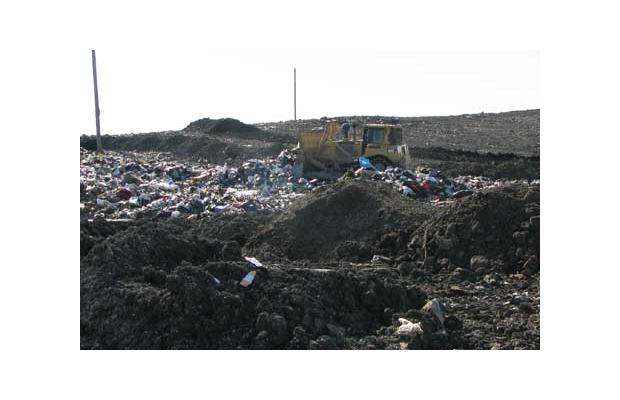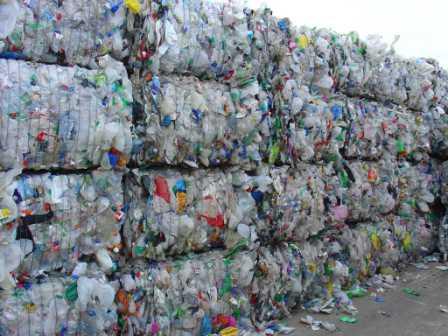Waste Diversion Through Recycling and Composting
Objective D5: Increase Community Waste Diversion Through Recycling and Composting
The following actions are needed to complete this objective:
- Expand the use of recycling bins in public facilities and other spaces, such as parks.
- Conduct a study to determine the most appropriate composting program for the City of Windsor and implement at an appropriate time.
- Investigate strategies for waste reduction, such as but not limited to garbage bag limits.
- Formalize a waste diversion plan for events at Festival Plaza and other special events – this could include mandatory use of the hydration station, use of recyclable food containers only, and mandatory waste stations with garbage, paper and plastic receptacles with proper labelling.
- Identify strategies to reduce single use plastic items (ex. plastic straws, bags, etc.).
These indicators show the progress the City is making to achieve this objective:
- Community diversion rate
- Total waste sent to landfill
- Waste diversion plan for special events
Solid Waste Management Indicator

On average, each resident in Windsor generates approximately 471 kilograms of waste. In the past, all municipal waste was disposed of in a landfill. In 1987/1988, a recycling program was instituted to divert waste from the local landfills. The items allowed in the recycling program are constantly changing as the demand for recycled products increases.
The Essex Windsor Solid Waste Authority (EWSWA) is responsible for the overall management of solid waste disposal and recycling programs. Other programs implemented by the City of Windsor and/or the Essex Windsor Solid Waste Authority that help divert waste from landfills include yard waste collection and the household hazardous waste program.
The Household Chemical Waste (HCW) Depot and Reuse Centre allows residents to drop off (free of charge) paint, fuels, pesticides, and home repair and automotive waste, as well as thermometers, pool chemicals, glues, adhesives, driveway sealers, fluorescent light bulbs and batteries. Keeping toxic chemicals out of the landfill reduces the chance of ground water contamination.
The provincial government has set a goal to divert 60 percent of Ontario's waste from landfill.
Why do we encourage waste diversion?
- Conserve landfill space. Landfills are a valuable resource, requiring extensive engineering design and long-term monitoring of water and air resources. By diverting waste, there is a delay in the need for new landfills, which are often located on productive farmland.
- Conserve non-renewable resources. Plastics (made from fossil fuels) and metals are non-renewable resources. Non-renewable resources are limited in supply and cannot be replenished (within a reasonable time) and require the use of more non-renewable resources in order to extract these products from the earth. By recycling materials, we can help to conserve the precious natural supplies.
- Save energy and reduce greenhouse gases. Recycling saves energy and reduces greenhouse gas production. It takes less energy to manufacture goods from recycled material than from raw materials. For example, to make an aluminum can from recycled aluminum uses only about 5 percent of the energy than is required to mine raw material and produce the same can. Recycling one ton of paper saves 17 trees, 359 litres of oil, approximately 31,800 litres of water, and 2.5 cubic metres of landfill space.
- Natural soil enhancements. Organic material is the biggest single component of the waste stream. Yard waste, including leaves and garden trimmings are collected by the City of Windsor for composting. Composting of organic material provides a better and natural alternative to chemical fertilizers for enhancing topsoil. Keeping organic materials out of landfills has the added benefit of reducing methane gas production. Methane gas is produced when vegetation decomposes in a landfill.
- Economic benefits. Conserving landfill space allows the landfill to be used longer for wastes that cannot be diverted. Recyclable materials are sold to recyclers.
How Are We Doing?
A decrease in the amount of total refuse sent to landfill may reflect an increase in backyard composting or product re-use, such as re-usable water bottles. The diversion rate considers the percentage of recyclable products (plastic, paper, paint, batteries etc.) and yard waste being collected. The higher the waste diversion rate, the more waste that is diverted from landfill. Preventing waste from reaching landfill through waste management benefits our health and the environment.
As shown in the chart, the amount of waste sent to landfill has increased slightly since 2007.
Note: In 2009, a unionized worker strike occurred, and garbage pickup stopped for several months, which had an impact on the amount of waste sent to landfill and subsequently the diversion rate. 2011 was the first year that the City of Windsor contracted out garbage to a private company.
As shown in the chart above, the percentage of solid waste diverted from landfill has increased slightly since 2007.
Note: In 2009, a unionized worker strike occurred, and garbage pick up stopped for several months, which had an impact on the amount of waste sent to landfill and subsequently the diversion rate. 2011 was the first year that the City of Windsor contracted out garbage to a private company.
What is the City of Windsor doing to improve our waste diversion rate?
- The City of Windsor and the Essex Windsor Solid Waste Authority partnered to provide public space recycling at twelve city parks (Mic Mac, Ganatchio Trail, Ford Test Track, and nine riverfront parks between the Ambassador Bridge and Pillette Road). Ninety recycling containers were purchased and installed side by side with existing garbage containers.
- The City of Windsor partnered with Stay Cool Windsor Essex to purchase a 375 US Gallon mobile water trailer, named the Hydration Station for use at sporting events and festivals. This unit will help limit the amount of single-use plastic bottles needed at events, as there are water fountains and faucets on the unit to fill water bottles.
- Environmental Master Plan actions for the Corporation of the City of Windsor include reducing paper usage within City operations and increasing the amount of recyclable materials collected on site at all City facilities by 25 percent by 2011.
What can you do to help?

Reduce - (avoid products and activities that create garbage):
- Think before you buy. Avoid purchasing disposable products. Quality products that last longer produce less waste and will save you money in the long run.
- Purchase only what you need. This reduces waste and saves you money.
- Buy in bulk.
- Minimize purchase of packaged goods and avoid single-use products or single-serving food items. Packaging ends up in the recycling or waste stream.
- Purchase products in returnable, reusable, refillable and recyclable containers.
- Use reusable bags (e.g. cloth, plastic) or bins when shopping.
- Leave your grass on your lawn or compost it. Clippings break down quickly and add nutrients to your lawn.
- Use reusable containers to pack litterless lunches.
- Use reusable mugs and bottles for coffee, water and juice.
- Consider the advantages and disadvantages of repairing rather than replacing broken appliances or household items. Although waste is one environmental consideration in this decision, inefficient energy consumption of old appliances should also be a factor.
- Rent and borrow items you use infrequently.
Re-Use (give items a second and third chance):
- Donate clothes and household items to charities. Share magazines or books with friends or donate them to organizations with in-house libraries.
- Plastic bags can be used as kitchen catchers or for pet waste.
- Reuse paper for notepads, lists or crafts.
- Use rechargeable batteries.
Recycle & Compost
The City offers a number of opportunities to recycle and compost. These include the curbside collection programs for Blue Box materials, yard waste and drop-off depots for other materials. Increase recycling by doing the following:
- Collect household paper; newspapers and telephone books; paper egg cartons and boxes; magazines; catalogues and books; pizza boxes and other corrugated cardboard in one container for curbside collection.
- Collect glass bottles and jars; aluminum and steel cans; aluminum foil containers and foil; and plastic bottles, jugs and tubs, in one container for curbside collection.
- Check the Essex-Windsor Solid Waste Authority, which lists allowable Blue Box materials, to see what your family is currently not recycling, and start recycling it.
- Don't let any get away. If you are recycling, make sure that none of the recyclables end up in the garbage.
- Not sure where to recycle it? Try the Recycle Coach App or the What Goes Where page on EWSWA's website.
- Recycle scrap metals and electronics at the City's transfer station.
- Recycle when away from home. If there are no recycling containers, bring recyclable cans and bottles home for recycling.
- Use your backyard composter. Your household can divert at least 100 kg per year of food scraps and leaf and yard materials. For more information on backyard composting, check out the Essex-Windsor Solid Waste Authority website.
- Take advantage of yard waste collection for all yard waste, Christmas trees, pumpkins, etc.
- Leave grass clippings on your lawn as a natural source of nitrogen and organic matter. Grass clippings are not collected as part of the curbside collection program.
- Take all your household special waste to the Household Chemical Waste (HCW) Depot and Reuse Centre. This keeps these wastes out of landfill.
For more information on Environmental Initiatives
Email: emp@citywindsor.ca


